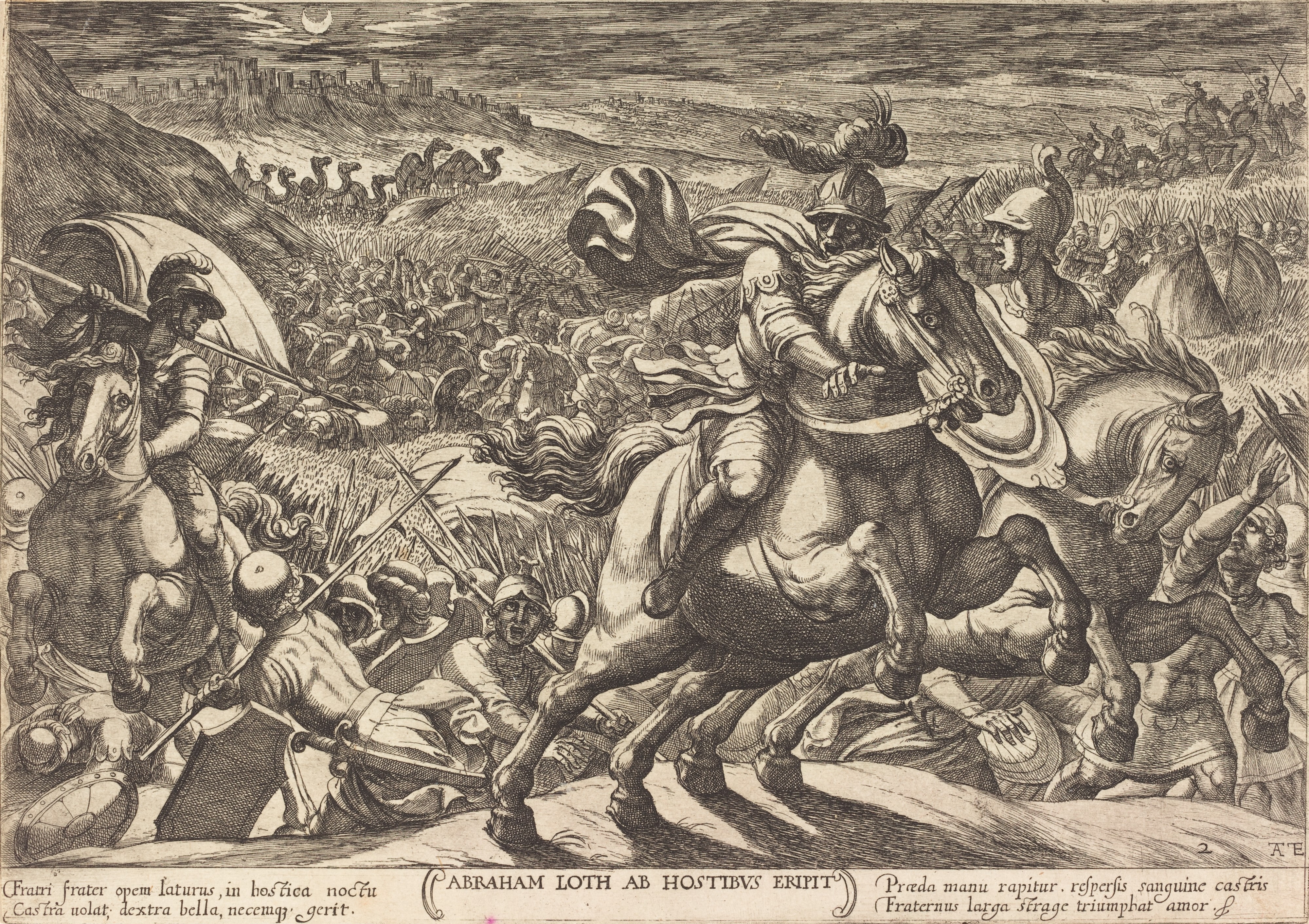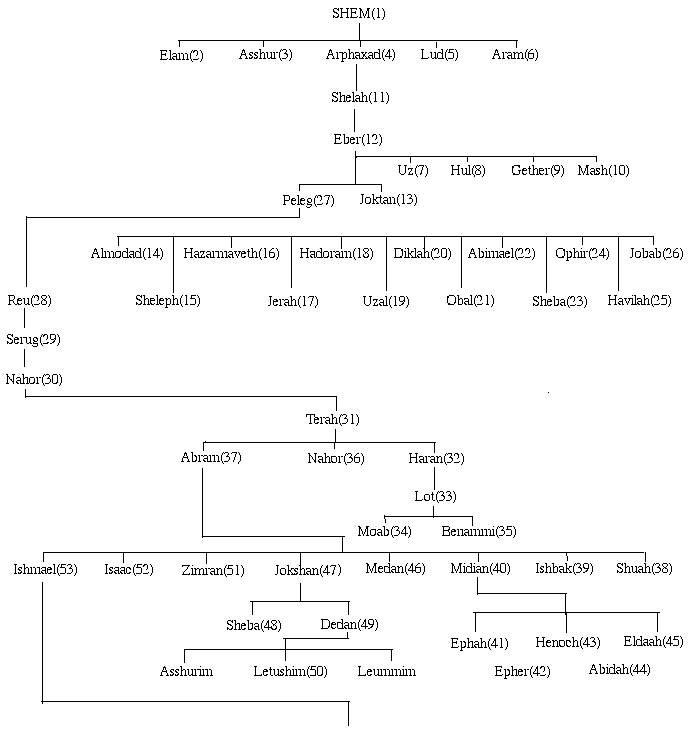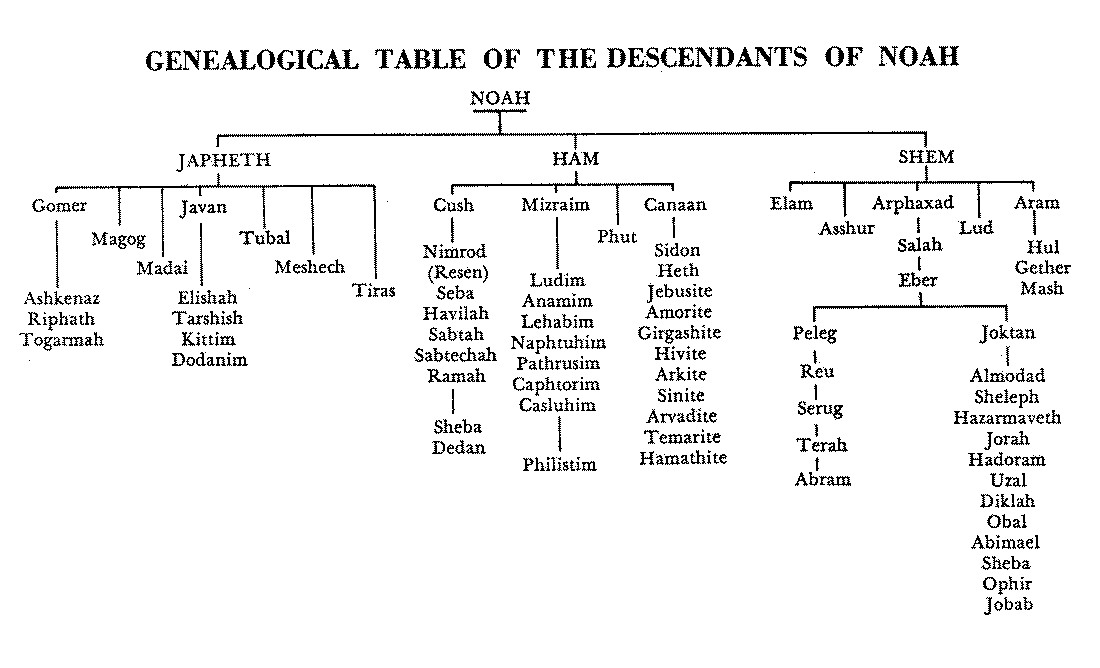When imagining a prophet, I used to think of an old man with a white beard who communicates with God as we do daily with any ordinary human being. I envision someone without fault, who walks with God and lives in a constant state of righteousness. Reading of Abraham's life has completely changed my view of what a prophet is. Born Abram, son of Terah, Scripture gives no reason as to why this man was chosen above all others to be the father of many nations. Like Noah, Abram is not described as exceptional in any way. His actions show his true character. Abram's bravery, faith and obedience are evident throughout the major events of his life which take place after he is first called upon by God. And yet...
He is not perfect.
Abraham makes mistakes. In fact, sometimes he makes the same mistake several times in a row, but because his heart belongs to God, he is always able to recover from the setbacks he creates for himself. This was a great relief to me. I know that I have made some big personal mistakes in the past, and to know that God is forgiving and ready to help us make the best of our past errors was extremely comforting to me. I hope that you are able to receive that happy message into your heart as well when you read Genesis 11-25.
When Abram first answers God's call, there is no indication that he has any idea where he is being led. He is wandering through the land guided only by his faith. How scary! I would be terrified! Did he not worry about where he would sleep? How he would survive? How he would support his wife, nephew and the rest of his caravan? He was responsible for the lives of all these people and he had no idea where he was going!!! But God knew, and that was all that mattered to Abram.
When they finally arrive in the land of the Canaanites there are already people inhabiting that land, but God tells him that his descendants will inhabit that territory in the future. Abram then builds an altar to the Lord in thanks for this great gift. At this time, his wife Sarai is considered barren and he himself is over 75 years old. He has left the rest of his immediate family behind to embark on a quest which leads him to a land that is already populated by people of another culture. But Abram's great faith does not allow him to question God's ways. Though God's promises must have seemed impossible, Abram knew that God had indeed given him the gift of land and numerous descendants. This reminded me of a quote I once heard. "Faith is believing in something you cannot yet see with human eyes." This story is such a great illustration of that definition!
Soon after, a great famine strikes the land. Abram and his people are forced to migrate to Egypt. While there, Abram becomes overwhelmed by fear. Sarai was extremely beautiful, and fearing that someone would kill him in order to take her as their wife, Abram lies, and claims to be her brother. When Pharoah hears of her beauty, he calls her to his palace. Thinking that Abram is her brother, Pharoah showers him with gifts. Of course, God is not pleased by this and inflicts plagues upon the Pharoah's household. Once Pharoah comes to the realization that Sarai is actually Abram's wife, he becomes fearful of Abram's God and sends them both away unharmed. The fascinating part is that Abraham makes the same mistake again in Negev several years later. Further on in Scripture, his son Isaac fabricates a similar story in Negev as well. The king takes Isaac's wife, Rebekah, into his palace thinking that she is Isaac's sister, and after God curses his household, she is released. Perhaps the moral here is that lessons that go unlearned by the parents are often passed on to the children. It is no rarity for father and son to share the same faults and make similar errors in life.
The next portion of scripture highlights the special relationship between Abram and Lot. Lot is the only man in Abram's family who accompanies him on this journey of faith. His father, Harran, passed away when Abram and his family were still residing in Ur. Perhaps Abram was a father figure to Lot, but it is clear that they valued each other's friendship. According to Scripture Abram and Lot are accompanied by other people. (the Bible never mentions specifics as to who these "people" are or how they are related to either of Abram or Lot) By the time their caravan reaches a place called Bethel they have acquired so many people, animals, and riches; that the land cannot support their two parties, and tensions rise among the herders.
"So Abram said to Lot," Let's not have any quarreling between you and me, or between your herders and mine, for we are close relatives. Is not the whole land before you? Let's part company. If you go to the left, I'll go to the right; if you go to the right, I'll go the left." ~ Genesis 13:8-9
So Abram and Lot seperate. I found this to be a remarkably loving decision, especially considering the time and place in which they lived. Many men in their situation would have resorted to violence, each one claiming the land as his own. Abram loves Lot so much that he does not care which portion of the land Lot takes for himself, and Lot cares so much for Abram in return that he does not even try to claim the land where they are currently settled, but moves to the plains of Jordan. How many times have we bickered over what is ours versus what belongs to another? In this chapter of Genesis we learn that preserving a friendship is vastly more important than any material wealth we feel is rightly ours.
When Abram hears that his nephew has been kidnapped and taken prisoner he raises an army of 318 men. I had no idea that Abraham was a warrior as well as a prophet of the Lord!. Even more shocking, is that Abram would have been an old man at this time. However, he is not one to let age stop him from saving his nephew and best friend. His men stalk the armies of Lot's captors during the night before beginning the attack. Not only does Abram win this battle, but he recovers Lot, his people, their possessions, and all of the captured women as well! Again, Abram shows us his exceptional character through his actions. Most people would begin mourning if they heard the news that their loved ones had been carried off by an army. It would be a lost cause, but apparently Abram's sense of duty knew no bounds.
The kings of the defeated army meet with Abram after Lot's rescue. This passage in the Bible is the first mention of several important themes present throughout Scripture.
"Then Melchizedek king of Salem brought out bread and wine. He was priest of God Most High, and he blessed Abram saying, 'Blessed be Abram by God Most High, Creator of heaven and earth. And praise be to God Most High, who delivered enemies into your hand.' Then Abram gave him a tenth of everything." ~ Genesis 14:18-20
I am assuming that because of King Melchizedek's description, he must have believed in one God as Abram did, or he was a holy man of a different religion who converted after seeing how God blessed Abram. After all, at this time in history, believing in one God would have been an extreme rarity. It is also the first time that the sharing of bread and wine is mentioned in the Bible. A holy priest saying blessings over bread and wine does sound familiar to something many of us do every Sunday doesn't it? :) I am beginning to understand how many of these small passages are preparing the way to the New Testament.
Since I returned to church in 2004 I have heard the word "tithing" mentioned here and there. One religion that takes tithing very seriously is the Church of Latter Day Saints. Most of us know them as Mormons, though nowadays most of them prefer to be called LDS. Practicing LDS give 10% of their income each year back to the church. I believe Judeo-Christian religions in general hold tithing as an important practice, but in my own personal life I see my LDS friends being the most active in doing so. I have to admit that I have never personally practiced tithing, though I have been giving it a lot of thought lately. In fact, only a few days after I had a good talk with my dear friend Michael about tithing did I read this passage. :) This is the first chapter in Scripture which mentions donating a tenth of what we own to something holy. I am also a firm believer in getting back what we give out. I'm not saying that we should start tithing because we want more money to come. We should give without expecting anything in return, but the Universe always rewards good deeds and I guarantee if we start doing this we will see big rewards. Not necessarily financially, but in the way we feel, our personal relationships, and who knows what other areas of our life will be impacted by it. Because let's face it, doing a good deed makes us feel happy inside! And it makes others happy too. :)
When the King of Sodom attempts to trade goods for Abram's people, Abram refuses. He will accept nothing from the evil king. He does not want the knowledge that part of his wealth came from bartering with such a sinful person. The moral? Do not make deals with people who have bad intentions. Wouldn't you rather your wealth and success to be attributed to your good works and accomplishments, rather than your associations with bad people? Of course!
At this point in time, Abram is very distraught. God is promising him that he will be the father of many nations and yet he has not conceived a child with his wife Sarai. God makes a covenant with Abram, promising him a son and descendants as numerous as the stars. I was listening to Joel Osteen online a few weeks ago. He was saying how important it must have been to Abram that anytime he began to doubt what God had told him, he could go outside and see the stars and remember God's promise. God wants so much for us. We only have to reach out and grab it. There is nothing preventing us from accomplishing the things that others "greater than us" have already accomplished. It is only our mindset that stops us. Sometimes our dreams, like Abram's, take a long time to come to fruition. Yesterday, my friends and I had a dream board party where we cut out pictures that represented goals we want to reach and put them on a poster board. Whenever we begin to doubt ourselves we can look at that board and remember what we are working towards. This is what God gave Abram. A giant dream board in the sky, so he would always know, even in times of hardship, that his dreams were in the process of becoming a reality. :)
God also predicts the future migration of the Hebrews to Egypt, their enslavement, and their journey back to the Promised Land. In this passage we get a small peak at the next book of the Bible, the Book of Exodus.
We will cover some of the subsequent chapters on Hagar, Ishmael, Sarai/Sarah, Isaac, Lot and the Angels in later posts. However, I will quickly touch upon two more major events in Abram's life. When Abram is 99 years old God appears to him again. He changes Abram's name to Abraham, meaning father of many nations. God also informs him that Sarai will now be called Sarah, and have a son with Abraham called Isaac. When Abraham hears this he laughs heartily. They are both close 100 years old in age, but God promises him that his covenant will be with Isaac. He also promises that Ishmael will be a father of nations as well. Though he is not Sarah's son, he is still blessed for he is of Abraham. Then God demands that all men in Abraham's household be circumcised and that all future male children be circumcised on the 8th day after their birth. It sounds like an odd request, but since Abraham and his people were wandering from place to place (and probably rarely bathing) this may have been a sanitary measure and a way to prevent disease. Abraham must have also been a powerful leader and expert seller of ideas because that same day, he, and every other male in his caravan are circumcised. Scripture does not even mention him questioning this command from God, as strange as it may have sounded.
In fact, the only time Abraham every questions one of God's intentions is when he announces the destruction of Sodom and Gomorrah to Abraham. Both cities had become ruled by sin to such an extent that we do not understand until we hear of Lot's experience the night when the city burned. Perhaps Abraham pleaded with God because he knew his nephew resided in Sodom, or perhaps it was also because he thought of the innocent men, women, and children who might be destroyed along with the city. But it is obvious through his words that Abraham is not at all pleased with God's decision. Abraham is so upset by this that he is bold in arguing with the Lord. "Will you sweep away the righteous with the wicked?....Far be it from you to do such a wicked thing- to sweep the righteous with the wicked, treating the righteous and the wicked alike. Far be it from you! Will not the Judge of all the earth to right?" ~Genesis 18:23-25 In the end, God promises Abraham to save any righteous people in the city. This is a really great example not only of Abraham's sense of duty and justice (one that goes so far that he would question God), but of also not fully realizing the scope of God's plan. Once we finally understand what is going in Sodom in the following chapter we do not at all doubt God's decision in destroying it. In our own lives, there are times when we do not understand why God is placing certain trials in our life, but God has a bigger picture in mind. So that in the end, our suffering and questions only lead to greater things. :)







